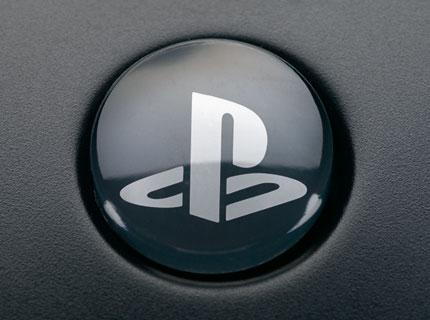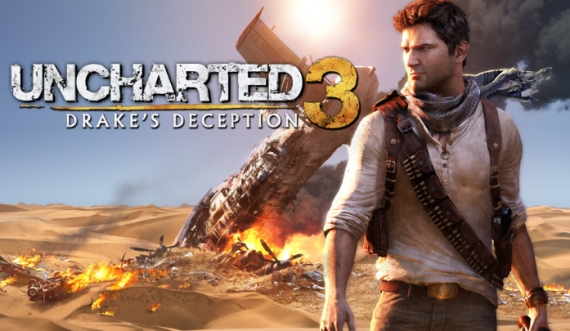-
Lastest Posts
History
PhcityonWeb Posts
- Animation (17)
- Comedy (3)
- Entertainment (24)
- Games (72)
- Life (1)
- Mobile Phones (12)
- Movies (87)
- Music (29)
- News (154)
- Politics (4)
- Programming (15)
- Series (12)
- Social (1)
- Society (1)
- Sports (6)
- Technology (2)
- Tutorial (7)
- Videos (4)
Worst Movies 2012
The year just began, so this is going to be a short list about the worst movies so far this year. Let’s start of with Haywire. Seriously why would anyone even want to watch this movie. Well I saw the preview and thought what the heck, let’s see what’s all about. It didn’t even reach more than 20 minutes into the movie and am already bored.The storyline is utterly whack and the plot makes the movies seem like a kid telling a story to his friends. The second on my list would be Ghost Rider: Spirit of vengeance, you guys did a nice job on the first one, why mess that up with another vague and irrational storyline. I like the first movie about it but now this one just seems ridiculous. More to come in my list of Worst movies 2012. Also watch out for my Best List coming at the end of this year.
Whitney Houston Dies at Age 48
 This is really a sad day for the music industry. I was going through my social online network when I found out the shocking news about Whitney Houston.It’s so tragic how Young and Old Star dies mysteriously. Many people online are taking about her drug addiction,But I believe there’s more to it than drugs. We witnessed the same thing when Amy wine-house death, always with a Mystery. I love Whitney because of her lovely voice and she does have the talent for singing.We will sure miss her, and condolences to her families and loved ones.our prayers are with you. More to other matters, the Grammys is just around the corner, the sudden death of Whitney will sure ruin the plans the show has got to offer.
This is really a sad day for the music industry. I was going through my social online network when I found out the shocking news about Whitney Houston.It’s so tragic how Young and Old Star dies mysteriously. Many people online are taking about her drug addiction,But I believe there’s more to it than drugs. We witnessed the same thing when Amy wine-house death, always with a Mystery. I love Whitney because of her lovely voice and she does have the talent for singing.We will sure miss her, and condolences to her families and loved ones.our prayers are with you. More to other matters, the Grammys is just around the corner, the sudden death of Whitney will sure ruin the plans the show has got to offer.
Grammy Nominations 2012
 The 2012 Grammy awards highlight some of the best artist singing in today’s music world. featuring from Hip-Hop to Country to Pop.Yes, they have it all.Witness your favorite musician display their latest and Hit track Live and Groovy.There’s No other show like this, only the best of the best artist gets to be Number 1 on the chart list.
The 2012 Grammy awards highlight some of the best artist singing in today’s music world. featuring from Hip-Hop to Country to Pop.Yes, they have it all.Witness your favorite musician display their latest and Hit track Live and Groovy.There’s No other show like this, only the best of the best artist gets to be Number 1 on the chart list.
1. Record Of The Year
- Rolling In The Deep
Adele
Paul Epworth, producer; Tom Elmhirst & Mark Rankin, engineers/mixers
Track from: 21
[XL Recordings/Columbia Records] - Holocene
Bon Iver
Justin Vernon, producer; Brian Joseph & Justin Vernon, engineers/mixers
Track from: Bon Iver
[Jagjaguwar] - Grenade
Bruno Mars
The Smeezingtons, producers; Ari Levine & Manny Marroquin, engineers/mixers
Track from: Doo-Wops & Hooligans
[Elektra] - The Cave
Mumford & Sons
Markus Dravs, producer; Francois Chevallier & Ruadhri Cushnan, engineers/mixers
Track from: Sigh No More
[Glassnote Records] - Firework
Katy Perry
Mikkel S. Eriksen, Tor Erik Hermansen & Sandy Vee, producers; Mikkel S. Eriksen, Phil Tan, Sandy Vee & Miles Walker, engineers/mixers
[Capitol]
2. Album Of The Year
- 21
Adele
Jim Abbiss, Adele, Paul Epworth, Rick Rubin, Fraser T. Smith, Ryan Tedder & Dan Wilson, producers; Jim Abbiss, Philip Allen, Beatriz Artola, Ian Dowling, Tom Elmhirst, Greg Fidelman, Dan Parry, Steve Price, Mark Rankin, Andrew Scheps, Fraser T. Smith & Ryan Tedder, engineers/mixers; Tom Coyne, mastering engineer
[XL Recordings/Columbia Records] - Wasting Light
Foo Fighters
Butch Vig, producer; James Brown & Alan Moulder, engineers/mixers; Joe LaPorta & Emily Lazar, mastering engineers
[RCA Records/ Roswell Records] - Born This Way
Lady Gaga
Paul Blair, DJ Snake, Fernando Garibay, Lady Gaga, Robert John “Mutt” Lange, Jeppe Laursen, RedOne & Clinton Sparks, producers; Fernando Garibay, Bill Malina, Trevor Muzzy, RedOne, Olle Romo, Dave Russell, Justin Shirley Smith, Horace Ward & Tom Ware, engineers/mixers; Chris Gehringer, mastering engineer
[Streamline/Interscope/Kon Live] - Doo-Wops & Hooligans
Bruno Mars
B.o.B, Cee Lo Green & Damian Marley, featured artists; Dwayne “Supa Dups” Chin-Quee, Needlz & The Smeezingtons, producers; Ari Levine, Manny Marroquin & Graham Marsh, engineers/mixers; Stephen Marcussen, mastering engineer
[Elektra] - Loud
Rihanna
Drake, Eminem & Nicki Minaj, featured artists; Ester Dean, Mikkel S. Eriksen, Alex Da Kid, Skylar Grey, Kuk Harrell, Tor Erik Hermansen, Mel & Mus, Awesome Jones, Makeba Riddick, The Runners, Sham, Soundz, Chris “Tricky” Stewart, Sandy Vee & Willy Will, producers; Ariel Chobaz, Cary Clark, Mikkel S. Eriksen, Alex Da Kid, Josh Gudwin, Kuk Harrell, Jaycen Joshua, Manny Marroquin, Dana Nielsen, Chad “C-Note” Roper, Noah “40” Shebib, Corey Shoemaker, Jay Stevenson, Mike Strange, Phil Tan, Brian “B-Luv” Thomas, Marcos Tovar, Sandy Vee, Jeff “Supa Jeff” Villanueva, Miles Walker & Andrew Wuepper, engineers/mixers; Chris Gehringer, mastering engineer
[Def Jam]
3. Song Of The Year
- All Of The Lights
Jeff Bhasker, Stacy Ferguson, Malik Jones, Warren Trotter & Kanye West, songwriters (Kanye West, Rihanna, Kid Cudi & Fergie)
Track from: My Beautiful Dark Twisted Fantasy
[Roc-A-Fella; Publishers: EMI April Music, EMI Blackwood Music, Headphone Junkie Publishing, Please Gimme My Publishing, Very Good Beats/Hip Hop Since 1978] - The Cave
Ted Dwane, Ben Lovett, Marcus Mumford & Country Winston, songwriters (Mumford & Sons)
Track from: Sigh No More
[Glassnote Records] - Grenade
Brody Brown, Claude Kelly, Philip Lawrence, Ari Levine, Bruno Mars & Andrew Wyatt, songwriters (Bruno Mars)
Track from: Doo-Wops & Hooligans
[Elektra; Publishers: Mars Force Music/Bughouse, Music Famamanem/Toy Plane Music/Art For Arts Sake/Late 80s Music/Westside Ind. Music/Studiobeat Music, Warner Tamerlane, Andrew Wyatt, Downtown DMP Songs, EMI April Music, Roc Nation Music] - Holocene
Justin Vernon, songwriter (Bon Iver)
Track from: Bon Iver
[Jagjaguwar; Publisher: April Base Publishing] - Rolling In The Deep
Adele Adkins & Paul Epworth, songwriters (Adele)
Track from: 21
[XL Recordings/Columbia Records; Publishers: Universal-Songs of Polygram/EMI Music Publishing]
4. Best New Artist
[Via Grammy]
Underworld – Awakening
 This has to be one of the most bloodiest movies so far this year. Although we’re just starting up the year but it has nice graphics and the story line as usual makes sense. Well in the sequel Selene who is our hero to say, is to battle off a whole new breed of Lycans, which has survived the purge, of the Human race in order to come out as the Top species as they said it – scourge of nature. A new breed just like Michael was born which is supposed to be Selene’s child. Not knowing that the people who is in charge of purging out the vampire species were actually the werewolf’s themselves trying to survive extinction and come out as the top and dominant species by multiplying themselves to be resistant to silver which actually kills them easily.It’s a good movie in all to watch, nice storyline and excess blood and gore. Go try it out.
This has to be one of the most bloodiest movies so far this year. Although we’re just starting up the year but it has nice graphics and the story line as usual makes sense. Well in the sequel Selene who is our hero to say, is to battle off a whole new breed of Lycans, which has survived the purge, of the Human race in order to come out as the Top species as they said it – scourge of nature. A new breed just like Michael was born which is supposed to be Selene’s child. Not knowing that the people who is in charge of purging out the vampire species were actually the werewolf’s themselves trying to survive extinction and come out as the top and dominant species by multiplying themselves to be resistant to silver which actually kills them easily.It’s a good movie in all to watch, nice storyline and excess blood and gore. Go try it out.
PlayStation 4: What Sony Should and Shouldn’t Do
Sony has made it pretty clear: The PlayStation 4 will not be a topic of discussion at this year’s E3.
That’s taken the wind out of the sails of the rumor mill, but just because the system won’t be introduced at this point doesn’t mean work isn’t already underway. Whether it bows in 2013, 2014 or even later, Sony’s going to have to work hard to top the features of the PS3. As we did last month with the next generation Xbox, we’ve got a few humble suggestions about what Sony should – and shouldn’t – do with its next console.
Sony should:
Learn from its mistakes – While the PS3 was crammed with bleeding edge technology, the company overestimated the amount gamers (and the mass market) were willing to spend. $599 as a launch price for a console was – and remains – shocking. It also opened the door for Microsoft and Nintendo to steal Sony’s console king crown.
 The video game industry works on a razor and razor blade model – losing money on the hardware and making it up on software sales. But when you price hardware out of the range of most people, you shoot yourself in the foot. While there’s no need to shoot for the low end of the pricing scale (like Nintendo did), debuting any new console above $399 is going to once again cause a stumble out of the gate.
The video game industry works on a razor and razor blade model – losing money on the hardware and making it up on software sales. But when you price hardware out of the range of most people, you shoot yourself in the foot. While there’s no need to shoot for the low end of the pricing scale (like Nintendo did), debuting any new console above $399 is going to once again cause a stumble out of the gate.
Ease up on the updates – The frequency of system updates for the PS3 has become something of a running joke. Unfortunately, that joke’s not very funny.
When you turn on your game system, you don’t want to sit there for five minutes watching it download and install a mandatory update. Constant downloads like that ruin the spontaneity and fun of gaming. Microsoft’s less frequent updates are annoying, but on a less consistent basis. A better solution would allow updates to download and install in background with the PS4 – perhaps utilizing a low-power always on mode, so there’s no drudge work required before people get their game on.
Look beyond games – Nintendo has been pretty adamant that it has little interest in content beyond games. Microsoft seems to be rushing to embrace the set top box world. Sony, though, seems a bit confused about what it wants the PS3 to be.
In the evolving world of consumer technology, Microsoft’s choice to make a machine that’s useful for the whole family – even those who don’t care about gaming – is the smarter bet. And no company is better positioned to do that than Sony.
“The Tester” might not be riveting viewing, but it’s a good first step toward original programming geared to the PlayStation audience. Also, while Microsoft might have Felicia Day’s “The Guild” locked up, there are plenty of other quality Web-based series that players haven’t discovered. And since the PS3 is the biggest base for Sony’s Music Unlimited service, throw those users a bone – with free concerts from big artists or other bonus content.
Embrace cross platform – PC gaming is Rasputin-like. No matter how many times people declare it “dead,” it always revives. And that’s not likely to change soon.
While Microsoft’s Games for Windows efforts haven’t gone over so well with PC gamers, Sony’s PC gaming arm, Sony Online Entertainment, could be a real asset if leveraged appropriately. Cross-platform play in particular is intriguing. However, it has been largely limited to DC Universe – a game that lost momentum after being stuck in development hell for a longer period than anyone expected. By utilizing SOE, Sony could create a new type of gameplay – and one that could be quite profitable. Consider: There has yet to be a viable MMO on any console, since the games take so long to create and console lifespans are largely fixed. But “EverQuest 3” as a launch title for the PS4 (as well as PC) sure has an intriguing ring to it, doesn’t it?
 Improve multiplayer – It’s staggering that even with its $60 per year annual fee, Microsoft is still considered the online leader this generation. The company’s sleek interface and well-organized multiplayer matching system have become a model for what the online elements of console gaming should be.
Improve multiplayer – It’s staggering that even with its $60 per year annual fee, Microsoft is still considered the online leader this generation. The company’s sleek interface and well-organized multiplayer matching system have become a model for what the online elements of console gaming should be.
By offering multiplayer gaming for free, Sony has an advantage – but it needs to make dramatic improvements to its communication and matching services. Jumping into those elements (and knowing what your friends are doing) should be effortless, instead of the chore it currently is.
Sony shouldn’t:
Move too fast – While gamers are always interested in the bright new shiny thing on shelves, the rollout of the PS4 would almost certainly mean the company would have to put a bullet into the PS2. Having three different products carrying the same brand name gets to be pretty confusing to the consumer, after all.
Problem is: The PS2 is still selling at a pretty rapid clip – and it’s basically a pure profit machine at this point. Half a million PS2s were sold over the holiday period worldwide, in fact.
The potential workaround for this is discontinuing the PS2 in the U.S. market, however, since the bulk of today’s sales of the hardware are in regions such as Eastern Europe, the Middle East, Southeast Asia and South America.
Stray too far from its roots – PlayStation Move is a nice add-on for the PS3, but it hasn’t revolutionized the system like Kinect did for the Xbox. PlayStation gamers like the DualShock – they love it, in fact. And this might be an instance of giving into their demands, even when R&D would love to try something different with the controller. (And, if you’ll recall the “boomerang” prototype controller for the PS3, there’s obviously some interest in doing so.)
Adding motion control into the system is fine, but if it’s going to be a big part of the PS4, integrate the camera into the system and make it easier to set up.
Bear hug the cloud – The PSPgo flopped for a number of reasons, but one of them was the system’s insistence on only delivering content via the cloud. Make no mistake, cloud services will play a big factor in gaming in the years to come, but it’s not going to be as soon as many proponents think. The mass market – a critical audience for Sony – is simply not ready for full digital distribution.
Profiles and game saves? Absolutely. Select content available via the cloud once you buy the physical disc? Sure. But people still want to get their hands on things.
[Via IndustryGamers]
Shy Ronnie 2- shy ronnie feat. rihanna
When I listened to this song, I just fell in love with it. Between, I love the songs made my The Lonely Island, despite their comedy in their musical videos, they have solid beats and good tracks in their album that shows that creativity as musicians. The comedy in this song is about shy Ronnie, a fictional part of this songs which emphasizes on a guy who’s so shy to sing out loud when Clyde (Rihanna) is there. In this version of shy Ronnie, they went to Rob a bank and in the process Shy Ronnie shot himself doing a similar thing compared to the first video -Whole World, also featuring Rihanna were he pissed on himself. I think this song is a major hit, because Rihanna killed the song with her awesome voice. Despite anything said, the lonely island’s are awesome guys with awesome beats.they have good concepts in all their videos and they’ve reached that margin, that makes me consider them as one of my favorite artist. Watch the video on Youtube and hope you like it as much as I do.
Posted in Music, Videos
Tagged music, Music-Video, rihanna, shy ronnie 2, SNL, thelonelyIsland
Leave a comment
Uncharted 3: Drake’s Deception
 Naughty Dogs have done it again, they’ve actually gotten a game perfect it, perfect it again and while at it, still want to perfect it. Why? The Graphics on this games is so cool, well am not gonna talk about the graphics because am using the PlayStation 3 Console and from the looks of it from that view point, the graphics are great added that I have an LCD Full HDTV – added advantage. Anyway i got to Play this game a week plus after it was released, am a pretty much a game fan but am somewhat a console fanatic, i love the PS3 system, so i won’t buy any game that’s not on the PS3 system, but that doesn’t mean i can’t play the game. Hope you get my drift? The game started off by Drake and Sullivan walking into a Pub in the street of London, seriously why London, anyway they got into a fight and thus begins the tale. This time Drake is out looking for Francis Drake’s Journey that took him to the Middle east, in search of what became known to be a hallucinating water, if anyone drinks of it, then their minds becomes vague and they start imaging things. The villains plot was to route the entire water out of the well where it was gotten from and use it as a kind of weapon. Drake with his goody two shoes embarks on the mission not knowing fully well of what he’s after but on the contrary it doesn’t look good if the worst happens. Nice plots and story line in the game. The new feature i love about the game is the “Snatch and Grab” weapon tactics, whereby Drake either hits you with his weapon and takes the enemy’s weapon or he hits the enemy with his fist and grabs the weapon in slow time – just lovely. It has a total of about 24 chapters if i remember correctly; i ended it on hard mode in about 3 days – I don’t play it every time I’ve got other things to do like Have a Life.LOL, One thing about the game i noticed, is that Elena looks somehow different from before compared to parts 1 & 2, don’t know if the creators actually did something to her but she’s totally off.Anyway it was fun playing it all those day because i just love listening to the Movie Mode. it captivates me.I think this game would really sell as a movie as well because common its Nathan Drake, its the only archeological game that actually sells millions…So if you haven’t played it, go get it, its awesome. am done with mine but i just like having the copy just to play it over and over again, same with the part 1 & 2.
Naughty Dogs have done it again, they’ve actually gotten a game perfect it, perfect it again and while at it, still want to perfect it. Why? The Graphics on this games is so cool, well am not gonna talk about the graphics because am using the PlayStation 3 Console and from the looks of it from that view point, the graphics are great added that I have an LCD Full HDTV – added advantage. Anyway i got to Play this game a week plus after it was released, am a pretty much a game fan but am somewhat a console fanatic, i love the PS3 system, so i won’t buy any game that’s not on the PS3 system, but that doesn’t mean i can’t play the game. Hope you get my drift? The game started off by Drake and Sullivan walking into a Pub in the street of London, seriously why London, anyway they got into a fight and thus begins the tale. This time Drake is out looking for Francis Drake’s Journey that took him to the Middle east, in search of what became known to be a hallucinating water, if anyone drinks of it, then their minds becomes vague and they start imaging things. The villains plot was to route the entire water out of the well where it was gotten from and use it as a kind of weapon. Drake with his goody two shoes embarks on the mission not knowing fully well of what he’s after but on the contrary it doesn’t look good if the worst happens. Nice plots and story line in the game. The new feature i love about the game is the “Snatch and Grab” weapon tactics, whereby Drake either hits you with his weapon and takes the enemy’s weapon or he hits the enemy with his fist and grabs the weapon in slow time – just lovely. It has a total of about 24 chapters if i remember correctly; i ended it on hard mode in about 3 days – I don’t play it every time I’ve got other things to do like Have a Life.LOL, One thing about the game i noticed, is that Elena looks somehow different from before compared to parts 1 & 2, don’t know if the creators actually did something to her but she’s totally off.Anyway it was fun playing it all those day because i just love listening to the Movie Mode. it captivates me.I think this game would really sell as a movie as well because common its Nathan Drake, its the only archeological game that actually sells millions…So if you haven’t played it, go get it, its awesome. am done with mine but i just like having the copy just to play it over and over again, same with the part 1 & 2.
Posted in Games
Tagged nathan drake, naughty dogs, PlayStation 3, uncharted 3, Uncharted 3: Drake's Deception
Leave a comment







